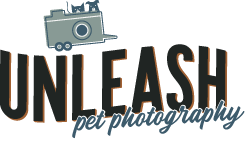Healthy Additions for your Dog's Diet
/Commercial pet treats can be high in calories. So if you are looking to add nutrients, vitamins, fruits and vegetables to your dog's diet as a healthier alternative, here are some suggestions:
Note: Always try new foods in small amounts and watch for side effects to ensure your dog is not allergic to any.
Symptoms of a food allergy include sickness, diarrhea, and skin problems. However, your veterinarian will be able to confirm for sure if your pet has an allergy and can advise on the best course of action.
Oatmeal - is a good source of fiber making it great for dogs with bowel or irregularity issues. The oatmeal should be cooked and without sugar.
Chicken - If your dog requires extra protein in his diet, cooked, unseasoned chicken is an easy addition to his/her regular food. It also makes a great meal replacement if you run out of dog food.
Eggs - are a great source of digestible protein, riboflavin, and selenium. The eggs should be cooked or you run the risk of giving your dog salmonella poisoning with raw eggs.
Cheese - your dog can eat cheddar, mozzarella and cottage cheese. Moderation is key as cheese is fattening. Also note that gas, diarrhea and vomiting may occur if a dog eats too much cheese.
Green Beans - fresh green beans will give your dog added vitamins and iron. Canned beans are not a good choice due to the high amount of salt.
Apples - are high in fiber and low in fat, making them an ideal snack for overweight or senior pets who may have a lower metabolism. They're also packed with vitamins A and C which are essential for maintaining healthy bones and tissue. Feed your pet apples in moderation and remove the core and seeds first, as they contain cyanide.
Watermelon - is almost 92% water, so it is great for keeping your pet hydrated. It also contains Vitamins A, C, and B-6, as well as potassium, which helps maintain healthy muscle and nerve function.
Carrots - raw and cooked carrots are a healthy addition to your dog's diet. Carrots should be cut in small pieces to prevent choking.
Yogurt - is high in protein and calcium and helps with any digestion problems your dog may have. Make sure you opt for yogurts that don't contain added sugar or artificial sweeteners.
Salmon - Dogs can benefit from omega 3 fatty acids too, so go ahead and add some cooked salmon into the food bowl for a healthier, shinier coat.
Blueberries - in addition to being a good source of fiber and Vitamin C, blueberries may lessen the chances of your pet developing urinary tract infections and have been shown to improve night vision.
Pears - are full of vitamin C, vitamin A, and fiber. Pears make a great snack for dogs when served in moderation. As with apples, pear seeds contain traces of cyanide and should be removed before feeding to your pet. Give cats or dogs small slices of pear to help promote anti-cancer properties.
Which foods, fruits and vegetables are bad for your dog?
Here is a list of six foods that you should avoid feeding to your dog.
Chocolate - contains caffeine-like stimulants known as methylxanthines. If ingested in large amounts, chocolate can cause vomiting, diarrhea, irregular heartbeat, seizures and even death.
Onions, garlic, wild mushrooms - can cause damage to your dog's red blood cells.
Avocado - avocado leaves, fruit, seeds and bark contain a toxin called persin that can cause upset stomach and breathing difficulties.
Grapes and raisins - are toxic to dogs and can cause kidney damage &/or kidney failure.
Cherries - the pit and the flesh are both toxic to dogs and can lead to gastrointestinal upset in dogs or death.
Rhubarb - rhubarb leaves are toxic as they contain oxalates, which can affect the digestive, nervous and urinary systems of dogs.
For more information and the sources of this information please visit the following website or speak with your veterinarian: www.trupanion.com; www.mnn.com








